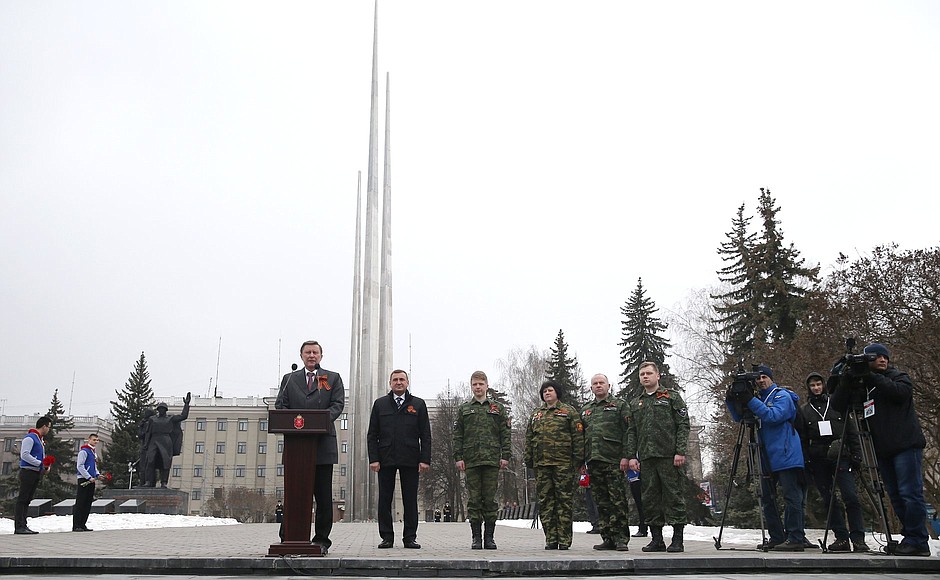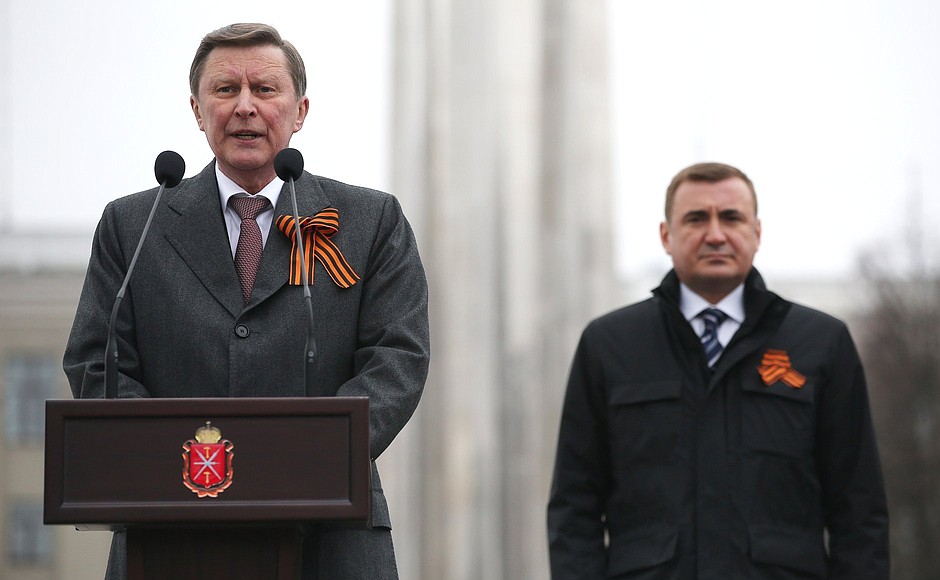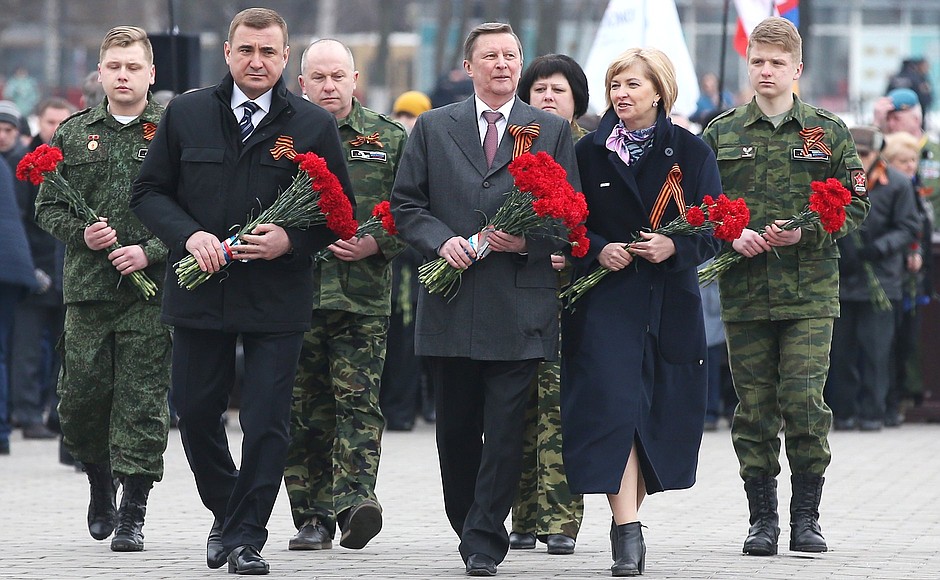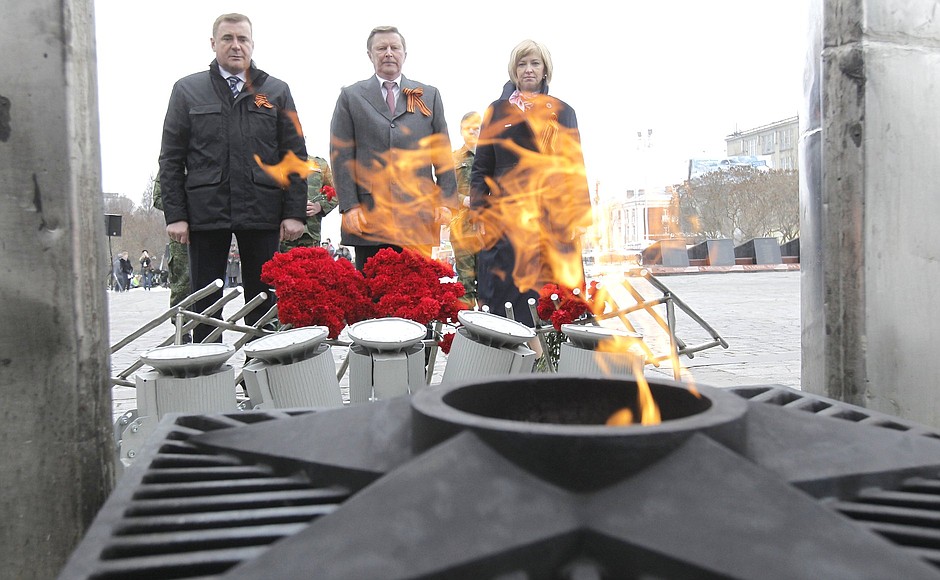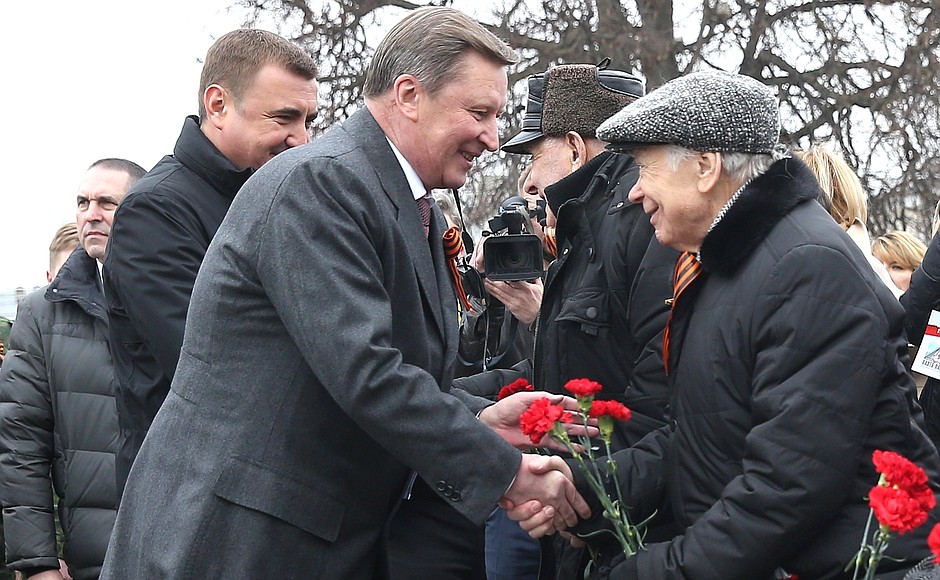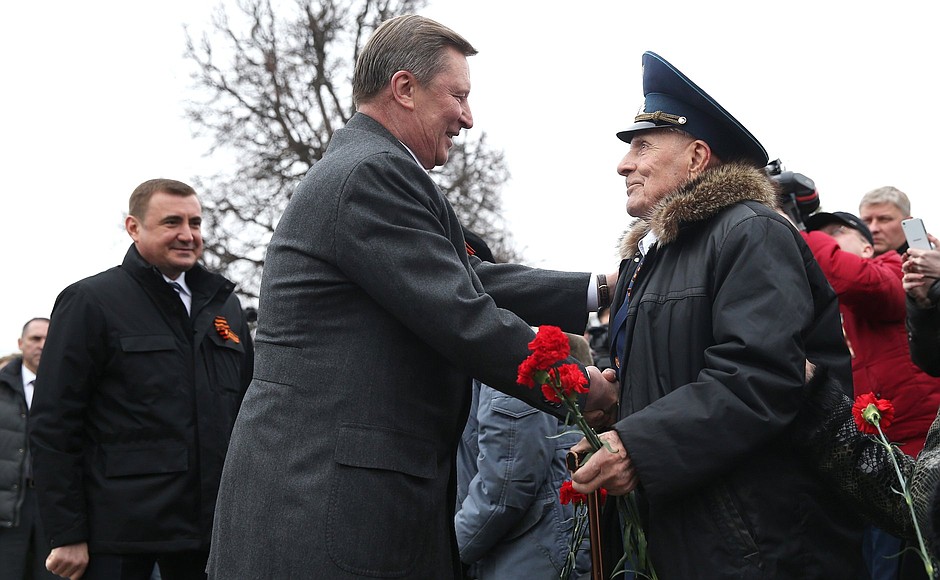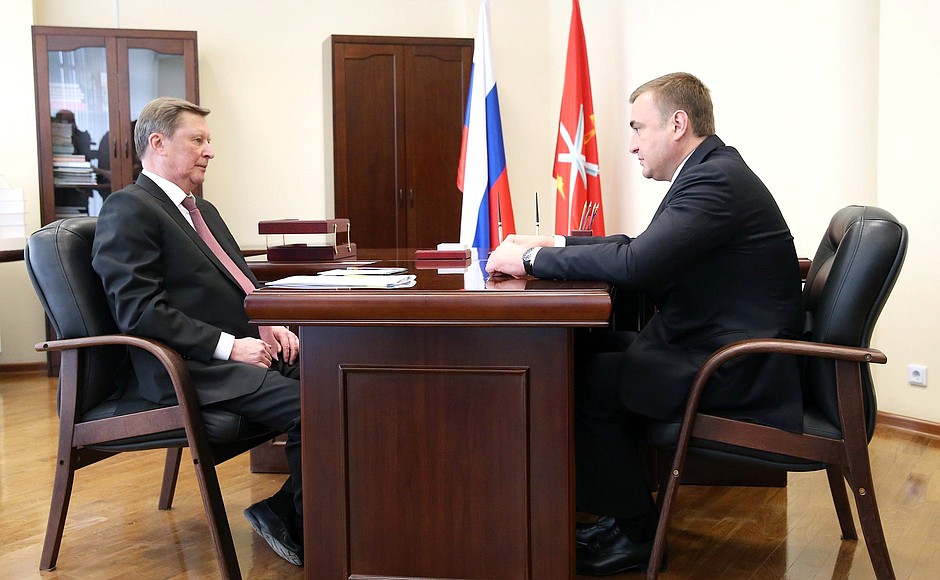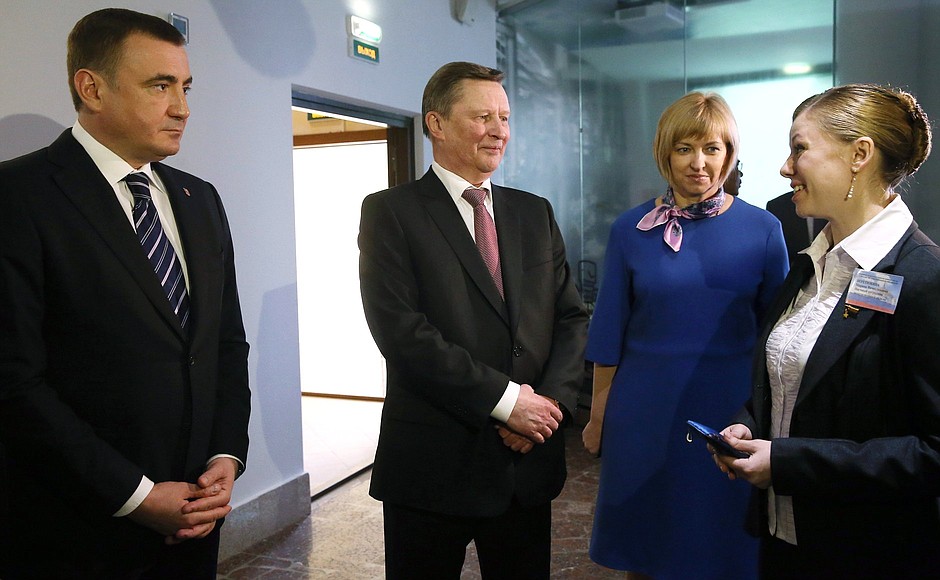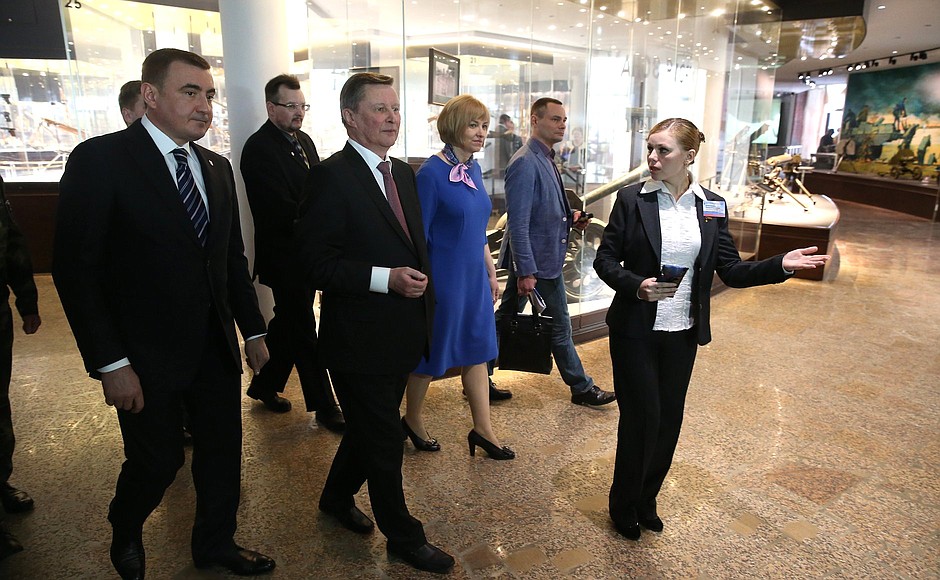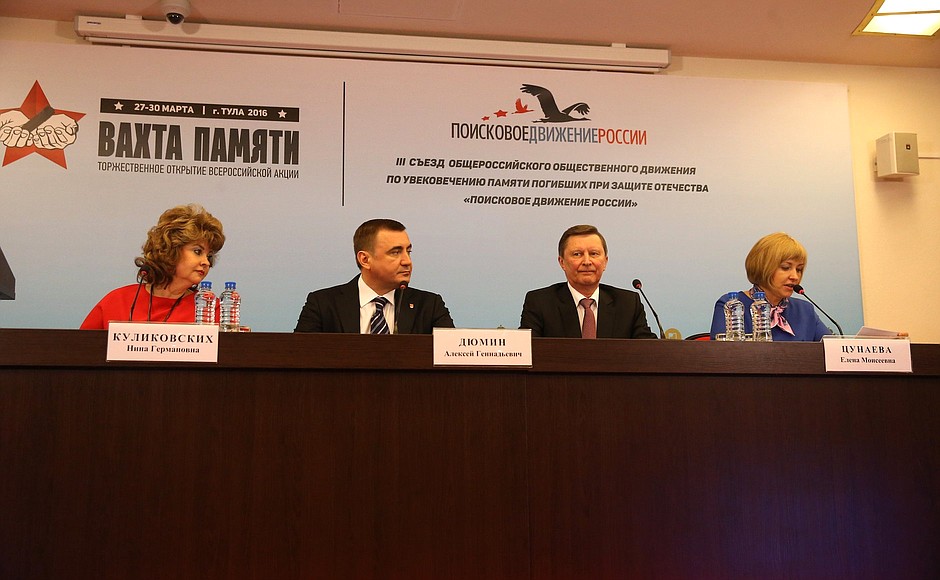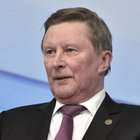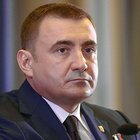Speaking at a gathering dedicated to the start of a new season of Memory Watch-2016, Sergei Ivanov noted the importance of the search teams’ efforts to bring back the names of the fallen defenders of the Motherland and preserve the memory of Great Patriotic War heroes. At the end of the ceremony, the participants observed a moment of silence in tribute to the memory of those killed during the Great Patriotic War, after which they laid flowers at the Eternal Flame at the Heroic Defenders of Tula memorial. The Chief of Staff spoke with representatives of a search team and veterans who participated in the ceremony, wished them luck and good health, and thanked them for their work and heroic deeds.
Sergei Ivanov also discussed certain aspects of the region’s socioeconomic development and a short-term working plan with Acting Governor of Tula Region Alexei Dyumin. He noted the need for diversifying production at defence industry enterprises. The possibility of restoring the Suvorov cadet school in Tula was also considered.
The participants also discussed environmental issues. Sergei Ivanov, who heads the Year of the Environment-2017 organising committee, asked Alexei Dyumin to focus specifically on changes that will lead to the reduction of harmful industrial emissions. The issue of providing housing to local war veterans and their families was discussed separately.
Later in the day, Sergei Ivanov visited the Tula State Arms Museum, and took part in a plenary session of the 3rd Congress of the Russian Search Movement, the Russian National Public Movement to Perpetuate the Memory of Those Killed While Defending the Motherland.
Mr Ivanov said that, on the initiative of the Search Movement, a commission to identify and preserve military and history sites was created under the Defence Ministry, and includes experts, representatives of relevant agencies and nongovernmental organisations. Mr Ivanov pointed out that its activities should focus on specific issues, such as keeping track of unique artefacts unearthed on battlefields or stored at military warehouses, and making them available to museums. According to Mr Ivanov, this will help overcome a major challenge in conserving material military heritage.
Mr Ivanov thanked the search team members for their work and assured them that the state will continue to support their initiatives and help organise more search missions. He also noted that, Unknown Soldier Day is now celebrated thanks to the search movement’s efforts. In closing, the Chief of Staff of the Presidential Executive Office said that meetings with search team members have now become a good tradition, and that they are interesting and substantive.
* * *
The Russian Search Movement is the nation's largest public search association, which has 40,000 members in 76 Russian regions. In 2015, they unearthed the remains of over 15,000 Soviet soldiers and officers, and documented more than 700 names and life stories of the defenders of the Fatherland who were previously considered missing.
